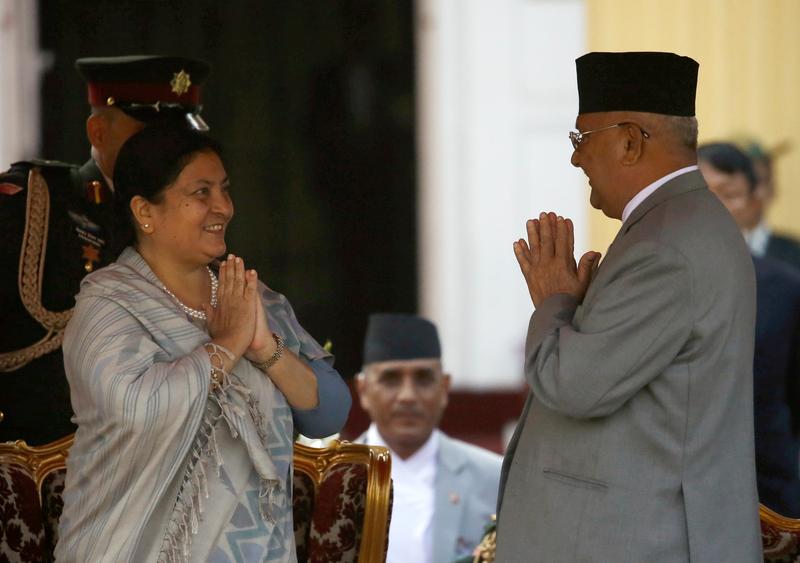
Nepal will likely head to the polls next year after parliament was abruptly dissolved on Sunday (Dec 20), a move prompted by infighting between the Himalayan nation's premier and members of his party, including former Maoist rebels.
Prime Minister KP Sharma Oli's government has weathered accusations of corruption and criticism for its handling of the coronavirus pandemic.
But his decision to request a new poll comes after months of clashes with Pushpa Kamal Dahal, a former insurgent leader who helped Oli come to power when their political parties merged in 2018.
The pair had previously clashed over their power-sharing agreement and a lack of consultation.
Members of Oli's party, who spoke on condition of anonymity, told AFP the prime minister's sudden move was also triggered by the possibility of a no-confidence vote against him in parliament.
Fresh elections will be held in April and May next year, the office of President Bidhya Devi Bhandari said in a statement after she approved the dissolution.
Ninety parliamentarians from the ruling party rushed to register a vote of no-confidence after Oli sent his request to the president.
President Bhandari, who hails from the ruling party and is considered close to Oli, was criticised for agreeing to Oli's dissolution recommendation so quickly.
"The president has also become part of the political crime by quickly endorsing the prime minister's move without consultation," said Gagan Thapa, an opposition leader from the Nepali Congress party.
Seven ministers resigned following the dissolution, saying in a statement that it goes "against the people's mandate and political principals", while some protesters took to the street in the capital.
The decision plunges Nepal into months of fresh political uncertainty after years of instability and short-lived governments that followed a decade-long civil war.
Analysts said the dissolution of parliament was likely to be challenged in court.
"The prime minister cannot recommend dissolution of parliament until there are chances of forming an alternative government," legal expert Bipin Adhikari told AFP, calling the move unconstitutional.

1730884134-0/BeFunky-collage-(26)1730884134-0-165x106.webp)



1730878907-2/Express-Tribune--(4)1730878907-2-270x192.webp)
1730884134-0/BeFunky-collage-(26)1730884134-0-270x192.webp)


1730885410-0/Copy-of-Untitled-(14)1730885410-0-270x192.webp)







COMMENTS
Comments are moderated and generally will be posted if they are on-topic and not abusive.
For more information, please see our Comments FAQ